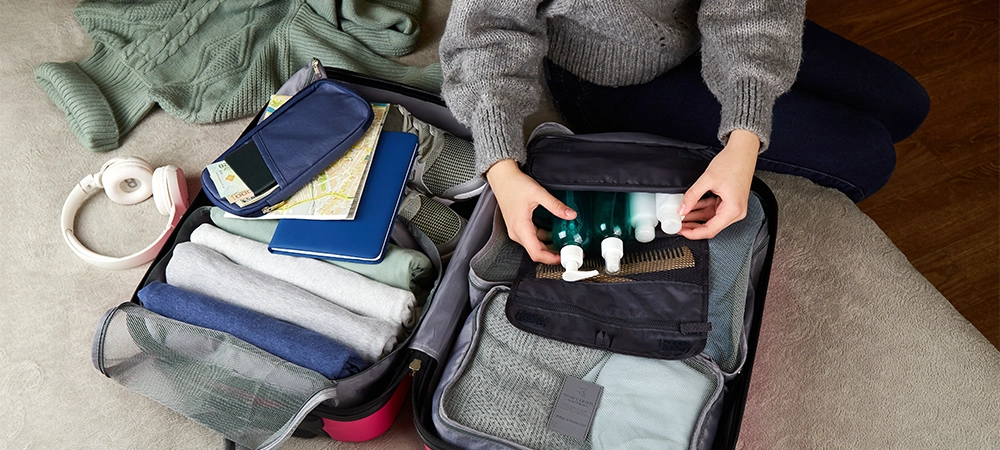Admitting yourself or a loved one to a rehab center is a courageous and life-changing decision. If you’re seeking help for addiction rehab in Toronto, proper preparation can make the process smoother and less stressful. Here’s everything you need to know to prepare for admission into a rehab center, ensuring you start your recovery journey on the right foot.
1. Understand the Admission Process
Before arriving at the rehab center, familiarize yourself with the admission process. Most addiction rehab facilities in Toronto will require:
- Initial Assessment: This typically involves a phone or in-person consultation where you provide details about your addiction history, current challenges, and any underlying medical or mental health conditions. Learn more about what to expect during rehab admission to help you feel better prepared.
- Documentation: Be ready to provide personal identification, medical records, and insurance information.
- Payment Arrangements: Clarify payment methods, accepted insurance plans, or financial assistance options if available.
Understanding these steps in advance helps reduce last-minute stress.
2. Discuss Treatment Goals
It’s important to have a clear understanding of what you hope to achieve during your time in rehab. Some goals to consider include:
- Overcoming physical dependence on substances.
- Learning coping mechanisms to manage triggers.
- Rebuilding relationships and trust with loved ones.
Speak with the rehab center’s counsellors to set realistic and personalized treatment goals.
3. Pack the Essentials
Most rehab centers in Toronto have specific guidelines about what you can and cannot bring. Here’s a general checklist of items to pack:
- Clothing: Comfortable, season-appropriate clothing for activities, including exercise. Avoid clothing with offensive slogans or images.
- Toiletries: Bring toiletries that don’t contain alcohol (e.g., mouthwash, perfumes).
- Medications: Pack any prescribed medications in their original bottles, along with a list of dosages and instructions.
- Identification and Documents: Include a government-issued ID, insurance card, and medical records.
- Personal Items: A journal, family photos, or books approved by the center can provide comfort and motivation.
For a detailed list of what to bring, visit this guide on rehab essentials. Rehab centers often prohibit items like electronic devices, outside food, or anything that could serve as a distraction. Be sure to confirm the guidelines beforehand.

4. Address Work and Family Obligations
Entering rehab requires you to step away from your daily responsibilities. Prepare for this transition by:
- Informing Your Employer: Discuss your need for leave with your employer. In Canada, addiction is considered a health issue, and you may qualify for medical leave or short-term disability benefits.
- Arranging Child or Pet Care: Coordinate with trusted family members or friends to look after children, pets, or other dependents during your treatment.
- Setting Up an Emergency Contact: Designate someone to handle any urgent matters in your absence.
By addressing these obligations, you’ll have peace of mind and be able to focus fully on your recovery.
5. Prepare Mentally and Emotionally
Admitting you need help can bring up a mix of emotions, from anxiety to hope. Here are ways to prepare mentally and emotionally for rehab:
- Acknowledge the Challenge: Recovery is a process, and it won’t be easy. Accept that there will be challenges but remind yourself of the rewards.
- Talk to Supportive Loved Ones: Share your decision with those you trust and ask for their encouragement.
- Join Pre-Rehab Counseling: Many centers offer pre-admission counselling to help you prepare mentally and answer any lingering questions.
Learn more about coming to addiction treatment in Toronto and what you can expect during this transformative process.
6. Tie Up Loose Ends
Before heading to rehab, take care of any lingering tasks that could distract you during treatment:
- Pay Bills in Advance: Ensure rent, utilities, and other payments are covered during your stay.
- Pause Subscriptions: Cancel or suspend unnecessary subscriptions like gym memberships or streaming services.
- Notify Close Contacts: Let friends and family know you’ll be unavailable and share updates through a designated point of contact.
7. Understand What to Expect in Rehab
Having a clear idea of what your rehab experience will involve can help ease anxiety. Addiction rehab programs in Toronto often include:
- Detoxification: The first step is where your body rids itself of harmful substances.
- Therapy: Both individual and group sessions to address the root causes of addiction.
- Skills Training: Learning coping mechanisms to handle stress and triggers post-rehab.
- Aftercare Planning: Preparing for life after rehab, including ongoing support and follow-up sessions.
8. Build a Support System
Recovery is a long-term journey that extends beyond your time in rehab. Start building a support system now by:
- Connecting with Support Groups: Research local Toronto-based support groups like Alcoholics Anonymous (AA) or Narcotics Anonymous (NA).
- Involving Loved Ones: Encourage family or friends to participate in family counselling or education sessions offered by the rehab center.
- Preparing for Aftercare: Discuss ongoing therapy, sober living arrangements, or follow-up programs with your rehab team.

9. Prepare for Life After Rehab
The ultimate goal of addiction rehab is to equip you for a substance-free life. Some steps to prepare include:
- Identify Triggers: Work with counsellors to recognize and manage the situations or emotions that lead to substance use.
- Plan for Healthy Habits: Commit to exercise, balanced nutrition, and mindfulness practices that support sobriety.
- Set Career and Personal Goals: Envision a fulfilling future and take steps to achieve it.
10. Contact Us for Support
If you’re ready to take the first step toward recovery, reach out to a trusted addiction rehab center. You can visit our website for more information or to begin the admission process.
Final Thoughts
Preparing for admission into a rehab center is a vital step toward reclaiming your life from addiction. By addressing practical, emotional, and logistical aspects beforehand, you set the stage for a smoother transition into recovery. Addiction rehab in Toronto offers a safe, supportive environment where you can heal, grow, and rebuild.
For more information about what to bring, what to expect, or the journey to recovery, contact us today. Take the first step today—you’re not alone in this journey.







